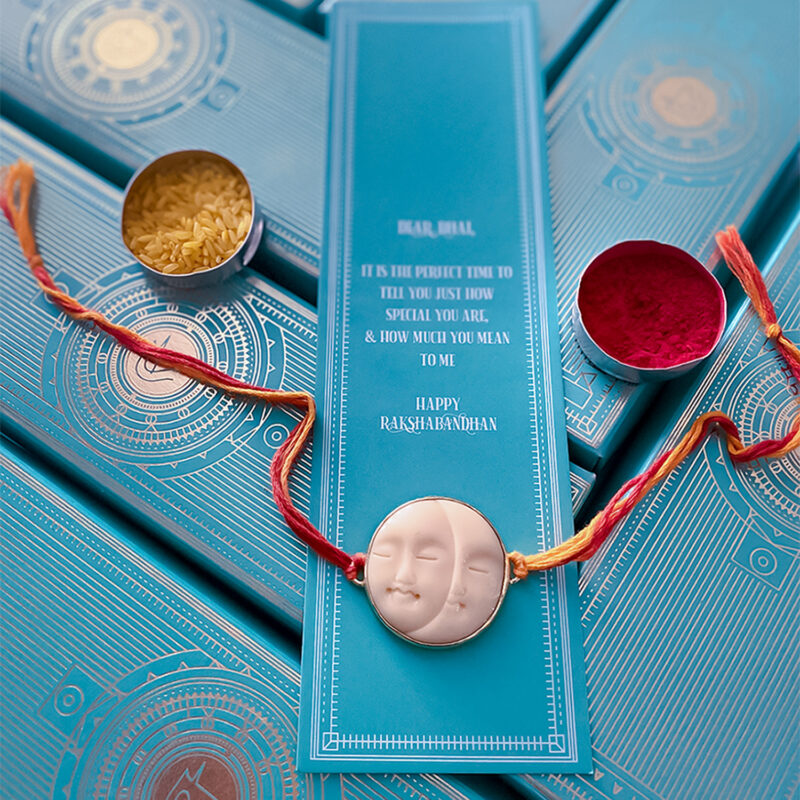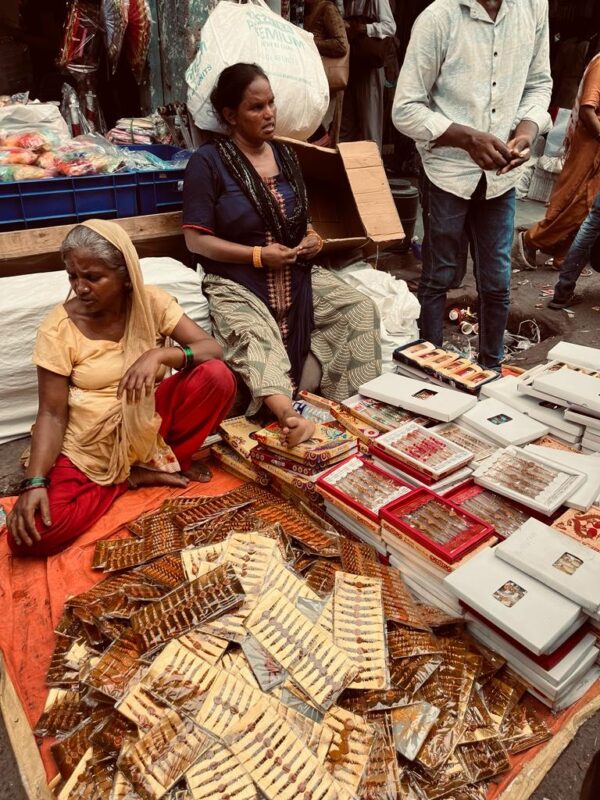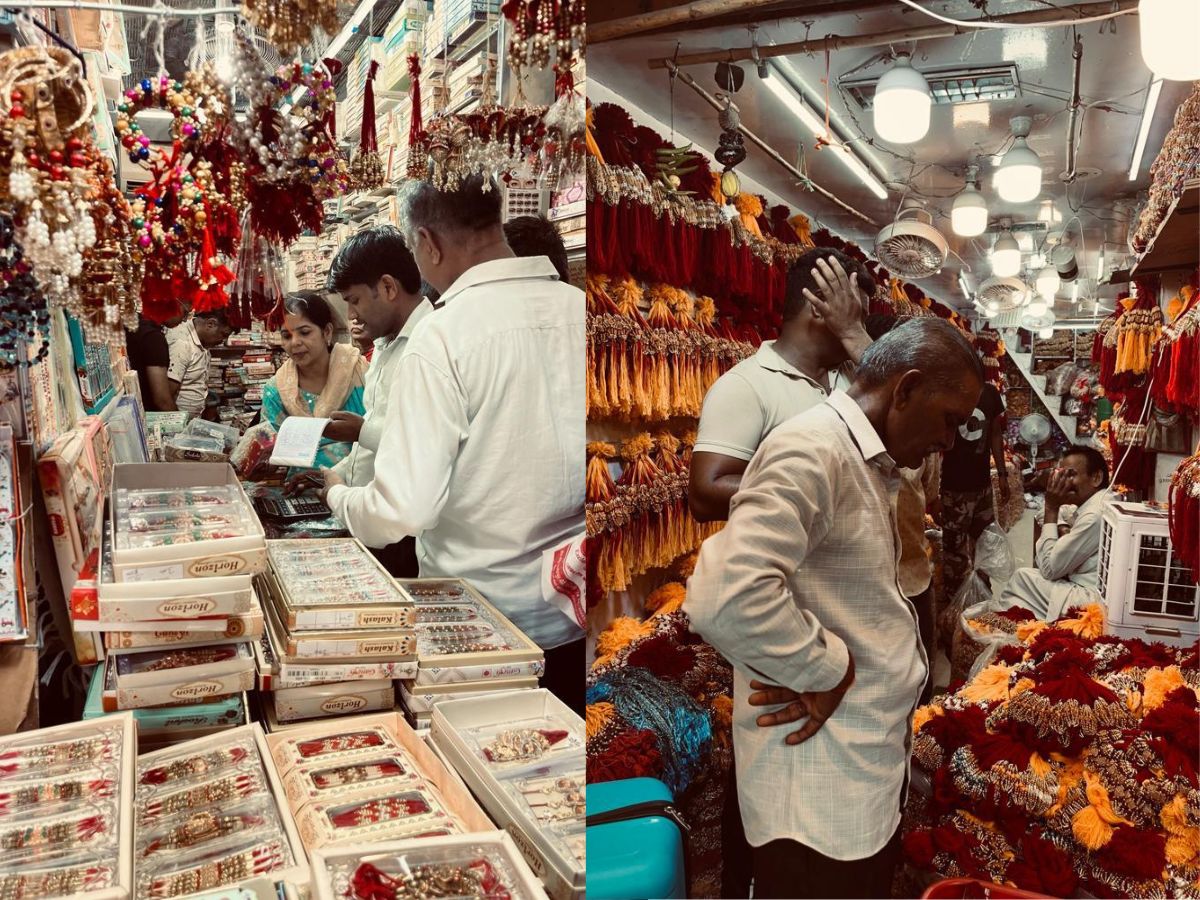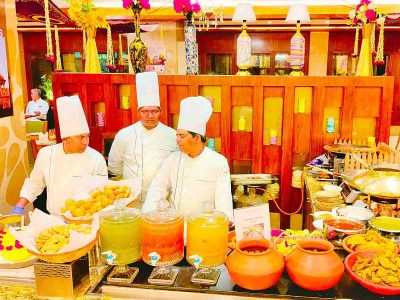When Chhaya, a resident of New Ashok Nagar, decided to buy a rakhi for her sister Vidya, she was in two minds. The rakhis available in the market did not connect with her, and she wanted something special to express the sisterly bond.
“I wanted to get it customised,” she told Patriot while visiting a store in Connaught Place.
“Vidya moved to Bengaluru a year ago and I miss her a lot. So, I am decorating the rakhi with Vidya’s name.”
For many people, rakhi is more than a mere accessory to be tied on Raksha Bandhan, which will be celebrated on August 30 this year. It embodies depth of emotions between siblings, encompassing love, care, and promise of lifelong support.
Although the ritual of tying rakhis is usually observed among brothers and sisters, there are those who are moving away from the gendered celebrations.
Subhita Jha, a 44-year-old resident of Badarpur, ties rakhi to her sister-in-law.
“I used to buy rakhi for my brother and in the store, I would often see rakhi that was designed particularly for women. I bought one for my sister-in-law and this is how the ritual continued. Now, it has become an integral part of Raksha Bandhan celebrations,” said Subhita.
Rakhis for women, according to Jha, are ‘bracelet-like’ and have a more delicate design.
Ruchita Bansal, creative director of the luxury gifting store ‘Izzhaar’, said that her store offers customised rakhis for ‘personalised gestures of love’ between siblings.
According to Ruchita, whenever the bond is special, or customers want to express special kind of emotions, they tend to choose customised rakhis over the ones already available in the market.
“Our gallery showcases a range of images that endorse the beauty of personalisation, something that symbolises special bonds through different designs,” said Ruchita.
At Izzhaar, the customisation options span engraved names and dates to hand-woven motifs reflecting shared memories, allowing customers to craft rakhis that resonate with their siblings’ personalities.

While Izzhaar sells customised rakhis both online and offline, gifting giants like Ferns N Petals sell the products online only.
“Much of our customer base for customised rakhis is online. This is also the reason we do not sell the product offline,” said Lalit Kumar, owner of a Ferns N Petals store in New Friends Colony’s Community Centre.
Gifting brand Archies do not offer customised rakhis, said a product manager.
Even though customised rakhis are outselling normal rakhis with the ratio of 3:1 in stores like Izzhaar, the vendors in the market complain about the loss of business this year.
In Sadar Bazar, the hub of festival products, a colourful array of rakhis is showcased by street vendors. From kid-friendly ones featuring cartoon characters like Motu-Patlu and Chhota Bheem, to intricately designed options for young adults, and the evergreen flower motifs made from sponge and plastic, the selection caters to diverse preferences.
Satish Khurrana, owner of ‘Simran Rakhi’, a shop in Sadar Bazar, said that although they have 5,000 variations of rakhis, the business this year has been very low.
“To address this matter of loss of customers, we have started selling rakhis for as low as Rs 2. The customers are still not encouraged to buy one,” he said.
The store sells rakhis for Rs 2 to Rs 200.
Vendors blamed coronavirus pandemic and the popularity of more ‘fancy’ stores for the loss of business.
“Due to fancy stores, my sales have decreased drastically. People appear to prefer well-known shops over independent vendors like me,” said Poonam, a street vendor in Sadar Bazar.

Almost all the shopkeepers Patriot spoke with expressed the same sentiment. There were some who also complained about the decreasing popularity of the festival.
“Some people now consider rakhi to be less important as they become more modern, which has an impact on our sales. The number of young people purchasing rakhis has reduced, and the majority of our devoted clients are middle-aged women,” rued Khurrana. (With inputs from Mohd Shehwaaz Khan)





